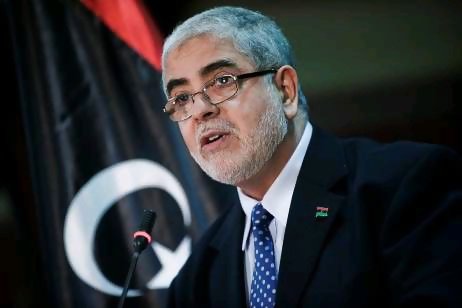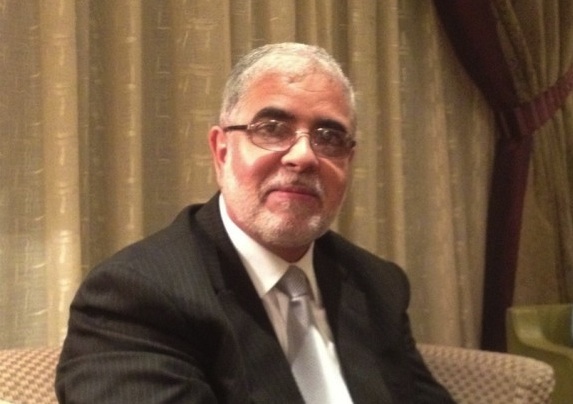By George Grant and Hadi Fornaji.

London and Tripoli, 19 September:
Ansar Al-Sharia, the militia suspected of involvement in last Tuesday’s deadly assault . . .[restrict]on the US Consulate in Benghazi, has warned Libya would become “an inferno for US troops” if the American military intervened in response to the attacks.
The group also warned that US citizens in Libya would become legitimate targets if Washington sent any forces to target Islamist groups.
Responding to the threat, Prime Minister-elect Mustafa Abushagur – who also serves as Deputy Prime Minister in the outgoing Government – has told the Libya Herald that the Government will do “whatever it takes” to prevent Ansar Al-Sharia from carrying out the threat.
“Clearly we are not allowing them to take control of the country and to threaten other people living in Libya”, he said.
“This is not acceptable. We are going to use whatever it takes to stop them taking this action.”
The threats were made yesterday by a leading member of Ansar Al-Sharia, Yousef Jehani, in an interview with the Reuters news agency. He said that whilst Ansar Al-Sharia wished to avoid further conflict, Libyans were prepared to wage a holy war to defend the country from foreign aggression.
“If one US soldier arrives, not for the purpose of defending the embassy, but to repeat what happened in Iraq or Afghanistan be sure that all battalions in Libya and all Libyans will put aside all their differences and rally behind one goal of hitting America and Americans,” Jehani said.
“Libyans will wage jihad. The US will be hit much harder than in Afghanistan and even US nationals would be targeted because the American presence would be considered an invasion”.
Washington has given no indication that it is preparing to intervene militarily in Libya, but US military activity has been stepped-up in and around Libya in response to last Tuesday’s assault in Benghazi, which left the US Ambassador and three other Americans dead.
US drones have been conducting reconnaissance missions over Benghazi, and a counter-terrorist unit has also been sent to Libya. Two American warships, the USS Laboon and the USS McFaul, have also been deployed off the Libyan coast.
The sabre-rattling from Ansar Al-Sharia, which has denied it was responsible for the US Consulate attack, has renewed pressure on the Government to take action against the group.
Last week, a senior advisor to Abushagur told this paper that the Government was committed to disbanding Ansar Al-Sharia, and was prepared to use force if necessary.
“We are negotiating to dismantle it,” the advisor said. “We don’t want bloodshed but if they do not agree we will have to use force.
Asked by the Libya Herald if that remained his position, Abushagur offered what appeared to be a more tempered response:
“We will use whatever means to deal with this. Clearly force is not the only option”, he said.
Thus far, the Government has not made a move against either Ansar Al-Sharia or any other group, although several arrests have been made in connection with the attacks.
Already, however, confusion has begun to set in amongst the authorities, with conflicting reports emerging as to whether or not the attack was pre-meditated; how many people have been arrested; and whether any of those arrested are members of Ansar Al-Sharia or not.
Today, Abushagur said that he believed “seven or eight” people had been arrested, but admitted he did not know whether any members of Ansar Al-Sharia were amongst that number.
Getting a grip on the security situation in Libya undoubtedly represents one of the greatest challenges confronting the incoming government. Over the course of the year, militants have staged attacks on a large number of targets, both foreign and domestic.
Benghazi has been amongst the worst hit, with militants having launched strikes on the United Nations, the Red Cross, a convoy carrying the British Ambassador, the Tunisian Consulate and the US Consulate on a previous occasion.
Ansar Al-Sharia claimed responsibility for the attack on the Tunisian Consuate, which took place back in June, in response to the publication of pictures in Tunisia that the group deemed offensive to Islam.
Benghazi has also witnessed what appears to be a systematic assassination campaign directed against senior Qaddafi-era military officers, with at least 14 having been killed so far, and many more wounded.
To date, however, not a single arrest is believed to have been made in connection with any of these prior attacks.
In addition to disbanding the militias and developing an effective army and police force in their place, extensive reform of the existing security apparatus is also reckoned to be needed.
In recent weeks, evidence has been mounting of potential complicity between militants and elements within the security services.
Last month, Salafists in Tripoli were able to demolish a Sufi shrine over a period of 48 hours with no attempt by the Supreme Security Committee to stop them.
Many senior Libyan politicians, including National Congress Speaker Mohammed Magarief, openly accused members of the SSC of collusion with the Salafists over the incident. Those responsible “are unfortunately aligned with some in the Supreme Security Committee and some ex-revolutionaries”, Magarief said.
With regards to last Tuesday’s fatal assault on the US Consulate in Benghazi, serious questions are being asked as to how it was that militants knew the location of a nearby safe house, supposed to have been secret, in which two of the four Americans were killed.
Finally, there is the question of how the Government plans to collect the hundreds of thousands of weapons still in the hands of militias and private citizens.
Last Sunday was billed to have been the starting date for a weapons collection initiative in Tripoli and Benghazi, but it was cancelled at the last minute to make way for the newly-announced Martyr’s Day, to be held each year in commemoration of all those killed fighting last year’s revolution.
Many analysts believe that persuading Libyans to hand over these weapons will be impossible without some form of financial incentive, a proposal Abushagur has put forward in the past.
Asked if a cash-for-weapons programme was still on the table, Abushagur said that the Government was considering “a number of options” and that he would announce a decision once one was made. [/restrict]









